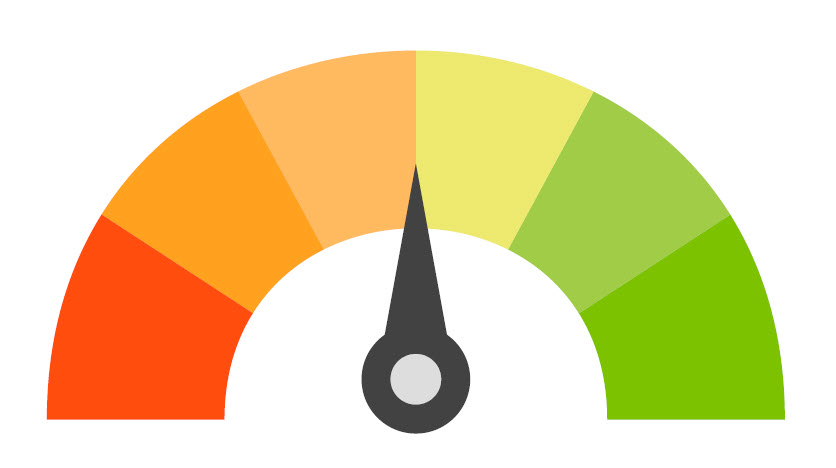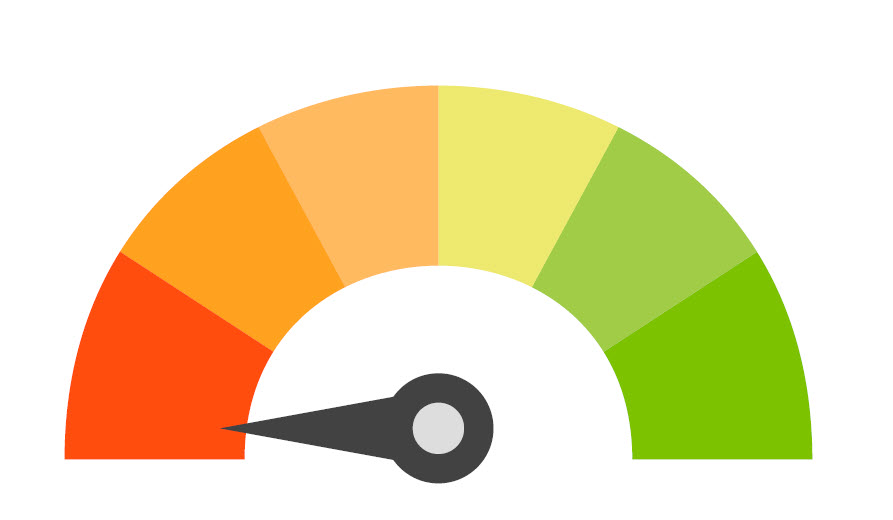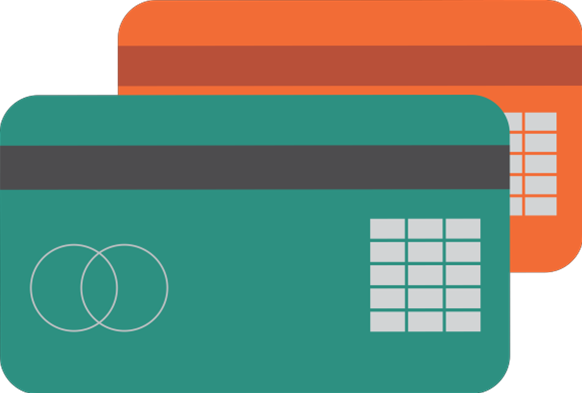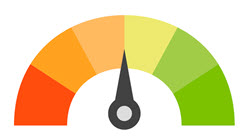THE BENEFITS – AND RISKS – OF CREDIT
This credit overview will help you learn the credit risk and benefit zones. Having the ability to borrow money when you need it gives you flexibility. But borrowing too much money and being unable to pay it back is a problem. It’s important to use credit responsibly and avoid having too much debt. If you understand how credit works and use it wisely, it can help you to reach your goals.
Benefits of having credit include:
- The option of buying something today and paying the money back over time, rather than having to wait
- The flexibility to act on major purchases and life opportunities that may require more money than you have on hand right now, like buying a computer, or borrowing for college
- Possibility to rent an apartment and to get service from local utility companies
Risks of having credit include:
- Overdoing it; borrowing more than you can afford to repay
- If you don’t make your payments on time, you’ll damage your credit record
- Paying late fees, if you don’t pay your bill on time
- Paying interest, if you don’t pay your bill in full each month
- Difficulty getting loans or credit in the future

Credit overview: establishing credit
If you’ve always paid cash or used checks to make purchases, and haven’t used credit, you may want to start building your credit. And if you’ve had credit problems in the past, it’s important to re-establish your credit history. Here’s why:
- You may need good credit for routine matters such as having the utilities connected to your home.
- Good credit is important to secure financing for buying items like furniture, a computer, a car, or even a new home.
- Employers often check the credit rating of prospective employees. A good credit rating can positively reflect your ability to manage responsibilities.
- Renting an apartment may be easier. A good credit rating tells landlords that you are a person who’s likely to pay the rent on time each month.
- If you need a loan, banks may look more favorably upon you, and may give you a lower interest rate, if you have a good credit history.

Getting started
At first, establishing credit may seem frustrating—you can’t get credit because you’ve never had credit. Or you can’t rebuild your credit because you’ve had credit problems in the past. Fortunately, there are steps you can take to start establishing a strong credit history. These may include:
- Establish a relationship with your financial institution. Opening a savings account or checking account may be a good first step.
- Set a goal to not spend more than you can pay back when the bill is due. Over time, the bank will see that you are reliable and trustworthy to repay a loan.
- Get one or two gasoline or department store credit card and pay your bill on time, every month.
- Take out a small loan for a household appliance or a computer and repay it monthly – in full and on time.
- Put your apartment and utilities in your own name and always pay your bills on time.
- Get a secured credit card, which requires a cash security deposit when you open the account. (This reduces the risk to the credit card issuer, because they can take the money from your deposit if you don’t pay your bill.) Or if you qualify, get a regular unsecured credit card.
What a credit card can do for you
Besides being a good way to establish a credit history, credit cards are very convenient. They allow you to:
- Buy items online and over the phone
- Make travel reservations, purchase airline tickets, and rent cars
- Shop more safely by not carrying a lot of cash
- Budget larger purchases by paying in installments
- Access funds in emergency situations

credit overview: managing your credit
Use your credit wisely
Once you start using credit, it’s essential to manage it properly. By using your credit responsibly you can go a long way in building strong and healthy credit.
Research shows that people spend more when they use credit cards instead of cash. With a credit card, you’re borrowing the money and it may be easy to get in over your head with credit card debt before you know it. Before making a purchase using your credit card, consider what you’re going to buy and how you’re going to repay.
As a general guideline, keep your credit card debt low enough so that you can pay it in full every month. If you have to carry a balance, a good guideline is to keep your credit card balance below 30% of your limit at all times. This will help you build credit by showing lenders that you can control how much credit you use. And it leaves enough credit available in case of an emergency.
When you’re starting out with credit cards, consider having just one card with a low spending limit. That will help you start to get comfortable using credit and paying it back, and it will stop you from getting into big trouble with debt.
Here are tips for managing your credit wisely:
More tips for using credit wisely
- Avoid loans and credit cards with high interest rates.
- Don’t take on monthly loan payments you can’t afford.
- If you have Internet or mobile access to your credit card account, track your account activity online, even before you receive the bill in the mail.
- Shop around for credit cards with low interest rates and low or no annual fee.
- Look closely at credit card offers that use the word “free.” Usually, everything has a price.
- Resist impulse buying!
- Keep track of what you buy with your credit card. Save your receipts and check them against your statement.
- Don’t go wild! Limit your credit card use. Remember your charges must be paid back.
how to repair your credit history
- Order a copy of your credit report annually so you understand your credit overview. To obtain a free credit report you can order online www.annualcreditreport.com. When you receive your report review it and make sure it is accurate.
- Challenge incorrect or outdated information on your credit report. Ask the credit bureau (Equifax, Experian or TransUnion) in writing to remove the incorrect information. The bureau must then contact the creditor that reported the incorrect information. If the creditor does not verify the negative item within 30 days, the bureau must remove the item and send you a corrected report. If the creditor states that the information is correct, you have the legal right to insert a 100-word statement in your credit report explaining why you dispute this information.
- Pay your current loans on time and as agreed.
- Contact your creditors and ask if they’re willing to arrange a new payment schedule. Stress your desire to make full payment over time.
- If you have had past credit problems, share this information with the bank when you apply. Have a letter prepared that you can include with your application explaining any extraordinary circumstances or reasons for past credit problems.
- Contact a credit counseling service in your area. They can help you understand your credit overview and can often help you work out a repayment plan with your creditors.
